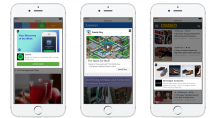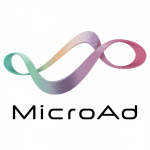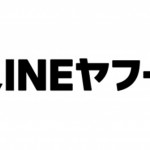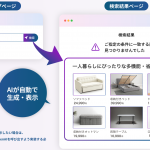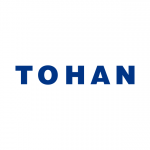Facebook、MicrosoftからAtlas Solutionsを買収か
The rise of an external Facebook ad network could be closer than ever. The social network is looking into buying Atlas Solutions from Microsoft, according to reports published Thursday by All Things D and Business Insider. Advertising Age had reported in October that Microsoft was in talks to sell the ad server to AppNexus.
The main driver for Facebook to acquire Atlas would seem to be the publisher relationships the social network would receive, explained Jeremy Hlavacek, vp of strategy and business operations at Varick Media Management. Not to mention the associated data. Though Atlas has long been a second tier ad serving rival to Google’s Doubleclick, and its market share has faded over the years, if the deal happens Facebook would suddenly find itself with a lot of information on ad volume, response rates and pricing on sites across the Internet.
For the most part, Facebook currently only sells its own media (ads on its desktop and mobile sites and mobile apps). Having delivered 28 percent of total online ad impressions in the U.S. last year, per comScore, the social network isn’t lacking for inventory. But Atlas could help Facebook at least get closer to the remaining 72 percent as well as whatever share of international inventory it lacks access to.
Overall, acquiring Atlas is about cementing Facebook’s position as Google’s most formidable rival in the online advertising space. Atlas would also help Facebook take another step in building out an ad tech stack that spans all the entities connecting buyers and sellers as Google has done with its DoubleClick Digital Marketing platform. Google’s stack includes demand-side platform Invite Media, supply-side platform Admeld and mobile ad network AdMob among others. AOL has made similar moves in this area, and Yahoo has also amassed a growing collection of interconnected ad tech businesses.
Although both Facebook and Microsoft are declining to comment on the reports, the move would align with Facebook’s recent expansion into the world of ad exchanges and programmatic ad selling.
For example, over the past year Facebook has given multiple signs that it’s laying the groundwork for a third-party ad network. In June it modified its user policies so that the company could run ads on non-Facebook sites with or without social context (photos or names of users that have liked an advertised brand or product).
Later that month Facebook made two moves that more closely connected its platform with the outside online advertising world. First news broke that Facebook would launch Facebook Exchange, which would let companies retarget users with ads on Facebook based on their browsing behavior outside of Facebook. Then Facebook began running ads on Zynga.com.
In October Facebook took it up a notch when it said it would begin testing the ability for advertisers to target users of mobile apps and mobile sites based on Facebook data. That news not only tipped off Facebook’s ad network ambitions but also layed out how a Facebook ad network could work—and how easily it could be set up. As long as a user’s device was signed in to Facebook’s mobile app or mobile site—and as long as the mobile app or site a user opened sold ads through a mobile exchange partnered with Facebook—Facebook could target that user with ads.
Even beyond Facebook’s online advertising ambitions, acquiring Atlas could bridge the offline divide. There would be a ton of privacy maneuvering, but essentially Facebook would have access to consumers’ online browsing behaviors via its own cookies as well as those Atlas drops. Facebook could then theoretically connect that cookie data with the user information it already has, such as email addresses and city or zip code information, and be able to more accurately attribute conversions and assemble audience profiles.
Of course, Facebook would need to cross a lot of T’s and dot a lot I’s to do so without the FTC slapping its hands again. But at this point such a strategy is starting to look more like a long-term possibility than a longshot.


